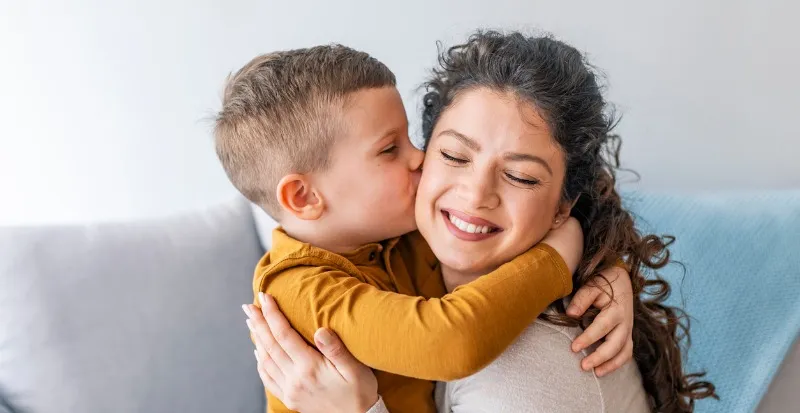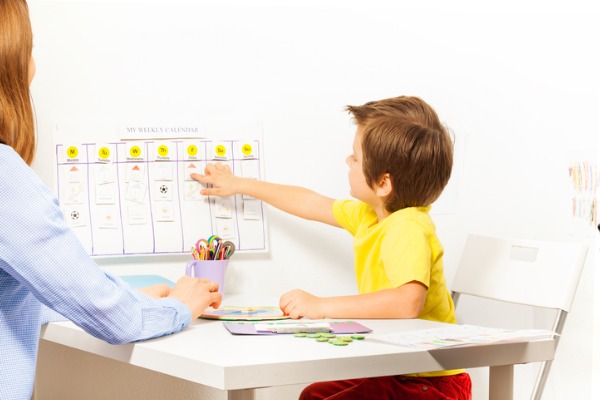Supporting Your Child’s Mental Health
Parents can support their child’s mental health with these 7 tips.
- 3 min read
- child development
- health & wellness

Mental health is important for people of every age, including children. Several factors can affect a child’s mental health, including family stress, medical problems, traumatic events, and more. Basing our research on psychology and parenting experts, we have created a list of seven ways parents can support their child’s mental health.
1. Recognize the signs
According to Mental Health America, parents can watch out for some common signs that may signal a child is struggling with their mental health. Of course, you know your kids better than anyone, and seeing behaviors that are extremely out-of-character (but do not appear in the list below) can also be a sign that help is needed. Common symptoms of a mental health problem in children include:
- Feelings of sadness or hopelessness
- Extreme anxiety
- Frequent nightmares
- Avoidance of people
- Drastic changes in eating or sleeping
- Lack of interest in things they once liked
Mental Health America also has a Parent Test and Youth Test for those trying to determine if a child’s emotions or behaviors may signal a problem.
2. Love & support
Showing your child that you love them often takes more than just saying the words “I love you”. Although that is always important, giving physical affection to your kids and recognizing the things they do well on a day-to-day basis are also ways to show you care. You should make an effort to nurture and support your children emotionally and intellectually as well. Spending dedicated time with your children without any distractions, such as electronics or work, can help demonstrate your focus on them.

3. Build routines
Just as your child knows what to expect at daycare or school each day, developing at-home routines is important as well. This is especially helpful for children with co-parents. Consistent routines between homes will help your child feel safe and secure. Talk to your child about what their regular days involve and write down (or draw) a schedule that will work for you both. Be realistic about your goals for yourself and your kids to ensure the routine is maintainable for the long-term.
4. Talk it out
When children see their parents in a state of anxiety, they are more likely to experience anxiety themselves. Brigit Katz from Child Mind recommends finding stress management techniques that work for you and modeling those for your child. Katz also suggests that parents discuss anxieties in a rational, calm way with their children. Discussions like these give kids the tools and language to talk about things they find stressful and normalize feelings of concern. Learn more about stress management for kids.
.jpg)
5. Rest
Physical health has an impact on mental health, and a lack of sleep or proper nutrition can make issues worse. Create schedules for your children that allow them to get enough restful sleep every night and encourage them to take time during the day to relax and wind down. Read more about how to help kids form healthy sleep habits.
6. Play
It seems so simple and obvious, but sometimes parents forget that playing is an integral part of letting kids learn, grow, and get creative. Outdoor and active play have benefits towards anxiety and self-esteem while also “enhancing the parent-child relationship.” Create playful moments in your day and get outside for a walk or to pass a ball. These activities will benefit both you and your child.

7. Remember to reach out
While parents are responsible for the well-being of their children, they do not have to do it alone. Friends, family members, and mental health professionals are all great resources for parents to reach out to for help. Additionally, as a co-parent, your child’s other parent is a primary resource for you to gain insight into your child’s moods and behaviors. Using a co-parenting communication service like TalkingParents can help you and your co-parent communicate and coordinate important details surrounding your child’s mental health.